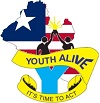Have you ever imagined a world free of bias, stereotypes and discrimination? A world that is diverse equitable and inclusive? A world where difference is valued and celebrated? Youth Alive Liberia continues its commitment to raising the confidence of women and girls in the communities in Liberia. Despite things are improving day by day, there is still much to be done. Our communities are still characterized by violence, stigma and discrimination against women and girls.

Every year, the world marks International Women’s Day on 8th of March. Government and Non government actors organize different activities to commemorate the day through celebrating the milestones made in prevention of violence against women and girls. This year, the theme was “Gender Equality today for a Sustainable Tomorrow” and online campaigns ran under the hashtag #BreakTheBias. Women and girls continue experiencing bias in terms of policy formulation and implementation, participation in decision making and other economic, social and political processes. The #IWD2022 and beyond aims at recognizing women who are working to build a more sustainable future. This can only be achieved if and when we all take part in promoting equality through gender based violence prevention.
At the organizational level, we continue documenting gender based violence cases, through the USAID funded EpiC project. The main focus of the project is on HIV/AIDS prevention but there was a desperate need to incorporate gender based violence because they go hand in hand. HIV/AIDS in many cases spread in abusive relationships and or marriages. Intimate partner violence has been rampant and is one of the causes of death and the spread of HIV/AIDS among other vices.
For example out of the last 44 GBV cases that we documented since the beginning of the year (2022), 60 percent were physical assault by their intimate partners (boyfriends and husbands). Toxic masculinity continues dominating our societies, subjecting women and girls to more harm with little or no response. Decision making role is still left for the man and in most cases the women will not report for various reasons. Talking to some of them, they feel that if they report their partners, then they may not receive any support. One of them said,
“I would wish to make a statement to police but I can’t because he is the one that can provide for me and our child. If he is arrested, we will suffer and also the community will look at me badly”
Women who work as sex workers also experience a lot of violence, both at their ‘work stations’ and their homes. The Constitution of the Republic of Liberia protects all its citizens regardless of their social, cultural, religious, economic and political beliefs, for as long as they don’t violate the rights of fellow human beings. Youth Alive Liberia reaches out to sex workers, ensuring that despite their trade, access to health services such as treatment if infected with HIV/AIDS, access to condoms and other forms of contraceptives and above all access to right information.
We spoke to some of the sex workers and the stories are similar. Some are abused by their partners physically and emotionally, others are violated by men who come to them as clients. Another young woman who works as a sex worker here in the city said
“A client had sex and refused to pay me. He beat me and threatened to kill me, so I did not have choice. I let him go”
She adds that sometimes her partner takes her money and even forces himself to have sex, even when she is not prepared physically and mentally. 7 percent of those we talked to pointed out that their partners deny them basic necessities. They refuse to provide food and other items in the household and if they question them (their partners) they turn violent. 20 percent confided in us that their sexual partners forced them to have unprotected sex and this led to some of them being infected with HIV/AIDS.

Inequality between women and men undermines all the sustainable development goals (SDGs). When women and girls lack or encounter limited access to education, information and services, their health and rights suffer. When women and girls lack full access to sexual and reproductive health and rights, their ability to contribute economically, socially and politically to their communities is severely constrained and this brings about conflict.
It is the responsibility of the state to prevent any form of violence and ensuring that the perpetrators are charged. The government and other non-state actors should be able to employ sustainable measures to ensure accountability in terms of GBV response and effectiveness of the justice systems in Liberia.
